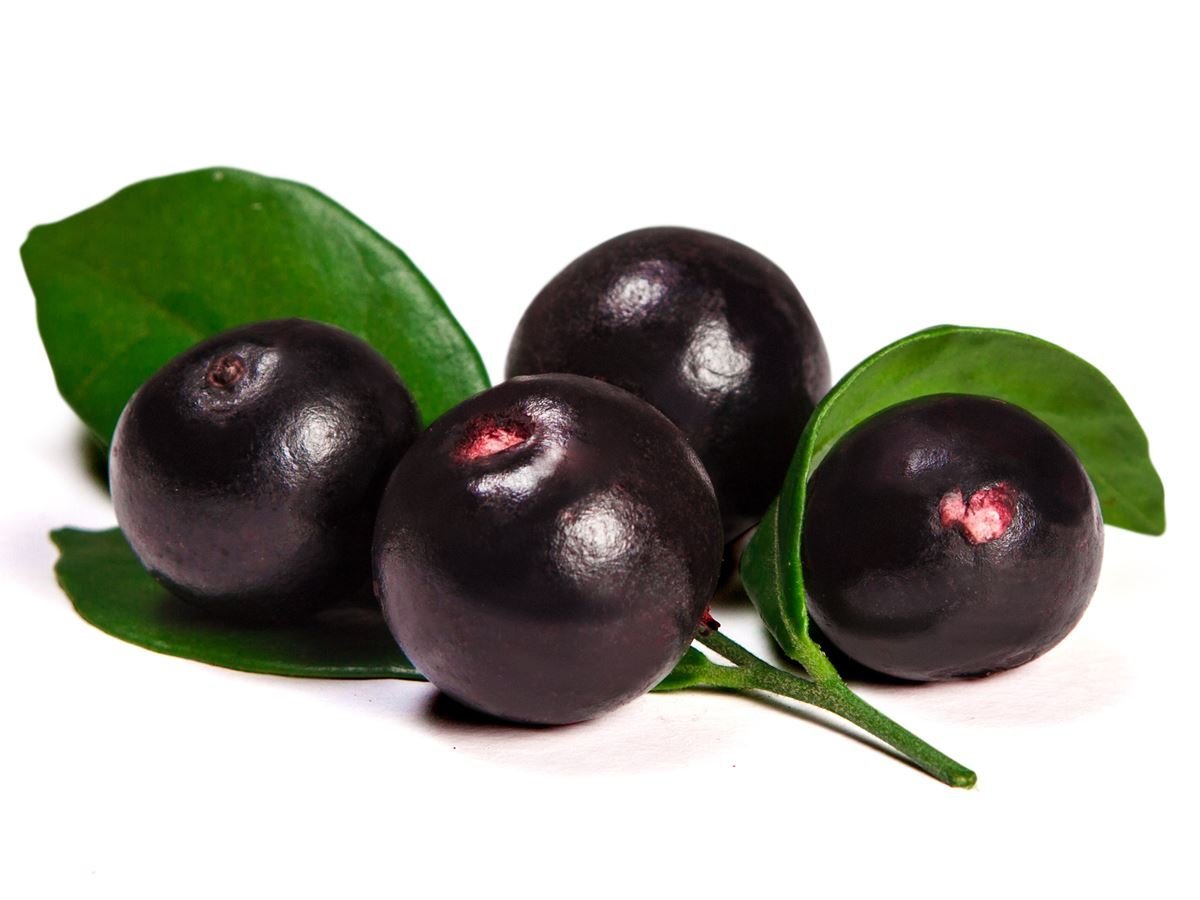
What is Acai Berry
The acai berry is a grapelike fruit harvested from acai palm trees, which are native to the rainforests of Central and South America. The acai fruit has long been an important food source for indigenous peoples of the Amazon region.
Acai berry is the a reddish-purple fruit. Acai is widely consumed as an edible fruit or juice and is also available as a dietary supplement (acai products are available as juices, powders, tablets, and capsules).
There is no definitive evidence that acai has any special health benefits.
Acai berries are widely touted as a so-called superfood, with proponents claiming that they are helpful for a variety of health concerns, including arthritis, weight loss, high cholesterol, erectile dysfunction, skin appearance, detoxification and general health.
Acai berries contain antioxidants, fiber and heart-healthy fats. They may have more antioxidant content than other commonly eaten berries, such as cranberries, blueberries and strawberries. But, research so far on acai berries is limited, and claims about the health benefits of acai berry haven’t been proved.
The acai berry’s anthocyanin content gives it its rich purple color. Anthocyanins are powerful antioxidants that may protect the body against cancer, inflammation, diabetes, aging, neurological diseases, and bacterial infections.
Keep in mind that many fruits besides acai berries provide antioxidants and other nutrients that are important to your health – and you can get similarly antioxidant-rich whole fruits and vegetables for a fraction of the cost of acai berry and in their natural form (without extra sugar or calories). Blueberries, blackberries, and raspberries are more economical choices that deliver similar health benefits
However, if you’d like to try acai, check your local health food or gourmet stores — acai berry can be consumed raw, in tablet form, in beverages such as juice, smoothies or energy drinks, or in other food products such as jelly or ice cream.
Acai berry is safe to consume, as long as you’re not allergic to the fruit. But, use caution when consuming products made with acai that may have other ingredients, such as caffeine.
If you’re taking amounts of acai higher than you’d normally eat as food, such as in dietary supplements, be sure to check with your doctor. This is especially important for people taking medications for high cholesterol or diabetes, and for people with kidney disease, as large amounts of acai might affect the management of these conditions.
It’s also important to let your doctor know that you’ve been eating acai berries if you’re scheduled to have a magnetic resonance imaging (MRI) test. Very large doses of acai might affect the results of MRI scans.
Can acai berries boost weight loss ?
Some weight loss products tout acai, but few studies have tested whether acai promotes weight loss.
Most dietary supplements sold for rapid weight loss, such as acai and hoodia, aren’t effective at keeping weight off in the long term.(Source 1).
Researchers who investigated the safety profile of an acai-fortified juice in rats observed that there were no body weight changes in animals given the juice compared with animals that didn’t receive it.
Currently there is no high-quality, independent studies have been published about the efficacy of acai supplements in promoting rapid weight loss. (Source 2).
- There is no scientific evidence based on clinical studies to support the use of acai supplements for any health-related purpose.
- In a laboratory study examining the safety profile of an acai-fortified juice found no changes in body weight compared with controls.
Many people who want to lose weight turn to unproven dietary supplements. These are sometimes called “fat burners” or appetite suppressants. But before you try them, remember two things:
⇒ These products make all sorts of claims for which they are not accountable.
⇒ ‘Natural’ doesn’t mean ‘safe.’
These products are not tested for safety by the FDA or anyone else. And they can have harmful side effects. (Source 1).
Therefore the Federal Trade Commission has taken action against companies that marketed acai weight loss products in allegedly deceptive ways.
There’s no doubt that berries and other fruits are a key part of any healthy diet. The jury’s still out on whether there is something special about acai’s ability to help shed excess pounds.
Acai Berry Safety and Side Effects
There is little reliable information about the safety of acai as a supplement. It is widely consumed as an edible fruit or as a juice.
People who are allergic to acai or to plants in the Arecaceae (palm) family should not consume acai.
Consuming acai might affect MRI test results. If you use acai products and are scheduled for an MRI, check with your health care provider.
Conclusion:
There’s no definitive scientific evidence based on studies in people to support the use of acai for any health-related purpose.
No independent studies have been published in peer-reviewed journals that substantiate claims that acai alone promotes rapid weight loss.
There is little reliable information about the safety of acai as a supplement. It is widely consumed as an edible fruit or as a juice.
Most dietary supplements sold for rapid weight loss, such as acai and hoodia, aren’t effective at keeping weight off in the long term.(Source 1).
A preliminary study suggested that eating acai fruit pulp might reduce blood sugar and cholesterol levels in overweight people.
Laboratory studies have focused on acai’s potential antioxidant properties, and a juice blend with acai as the main ingredient has been shown to have an antioxidant effect in people. (Antioxidants are substances that may protect cells against certain types of damage.) Acai berries have no known health benefit that’s different from similar fruits, e.g. blueberries, blackberries, and raspberries.
References- American Heart Association’s Heart Insight Magazine Spring 2015 – Dietary Supplements – http://heartinsight.heart.org/Spring-2015/Dietary-Supplements/
- National Center for Complementary and Integrative Health – Weight Control and Complementary and Integrative Approaches:
What the Science Says at https://nccih.nih.gov/health/providers/digest/weightloss-science





